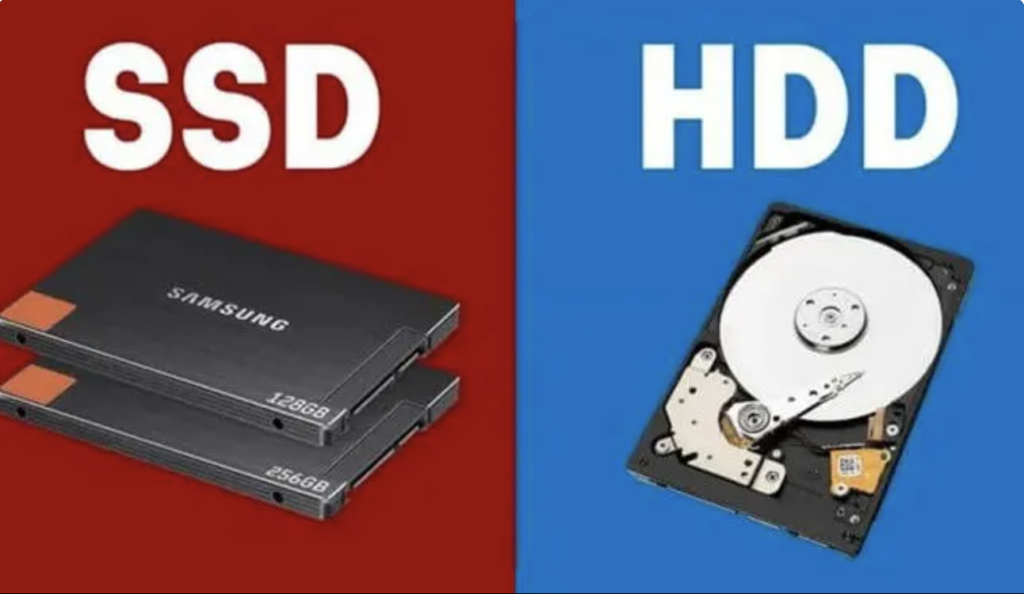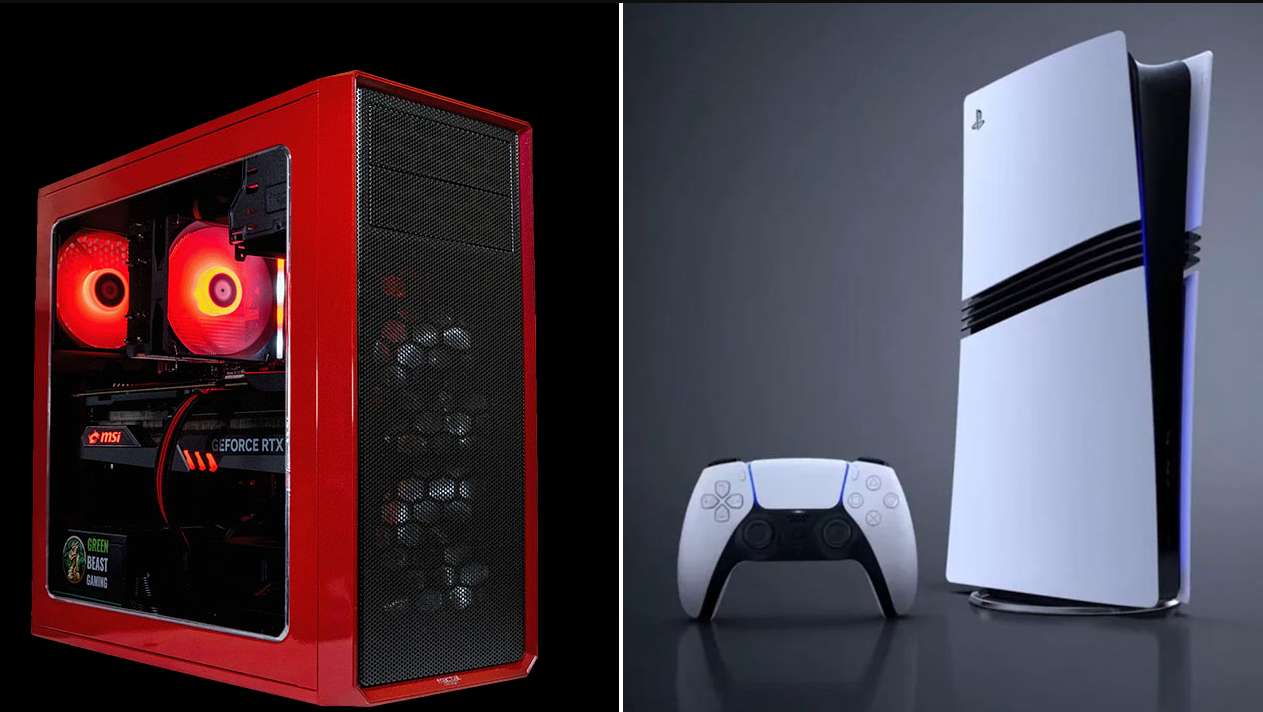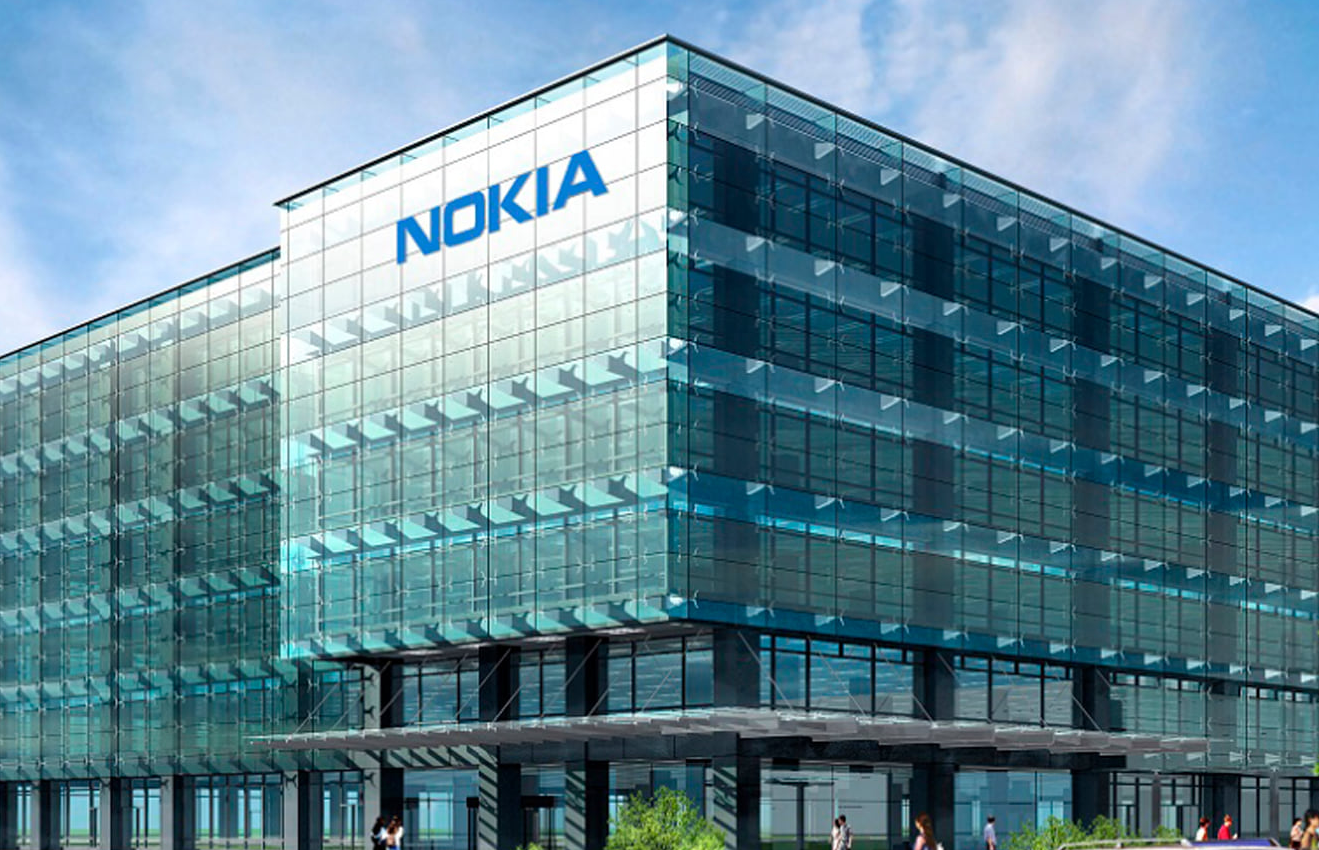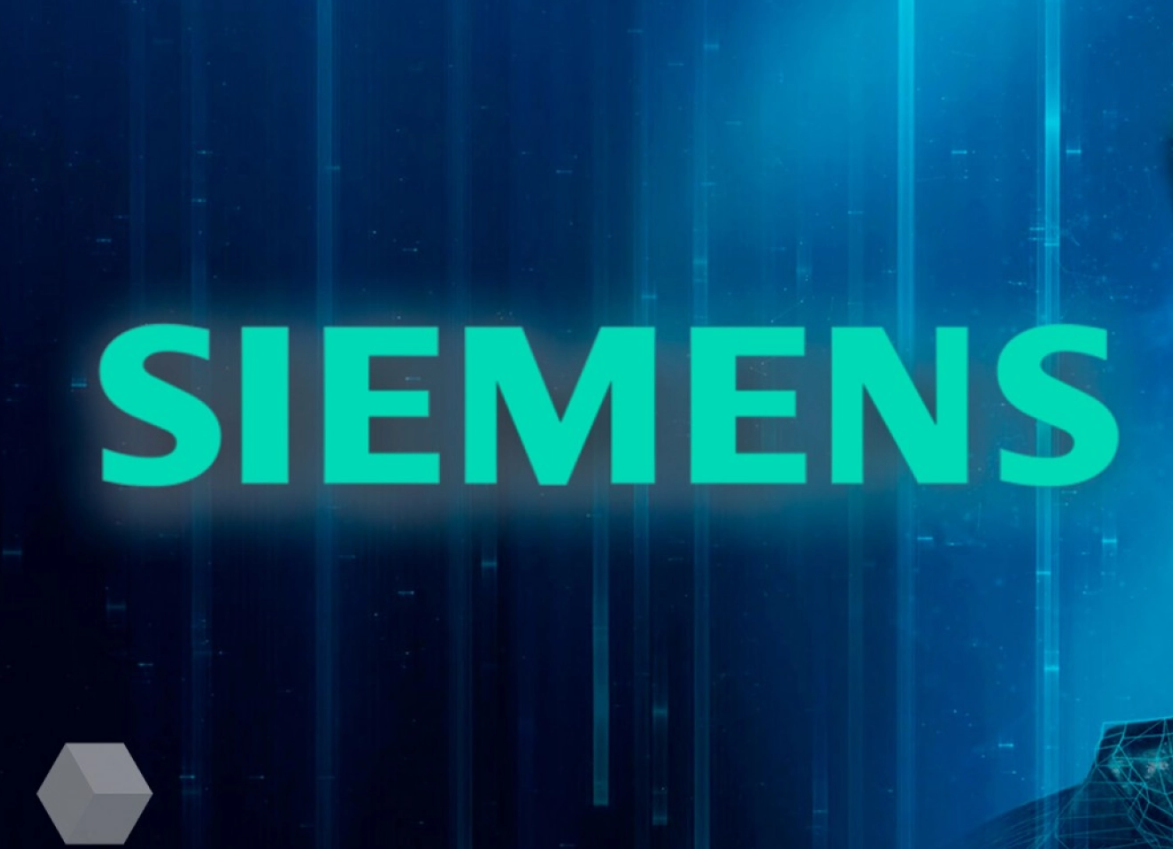In a world of computing technology where data volumes are growing at an incredible rate, the question of choosing the best storage solution is becoming increasingly important. At the centre of this debate are the two main types of storage devices: solid state drives (SSDs) and hard disk drives (HDDs). This choice goes beyond a simple technical solution; it is a battle between innovation and tradition, between speed and capacity, between the future and the past.
For a long time, HDDs have been the standard in data storage, offering impressive storage capacities at a relatively low price. However, with advances in technology, SSDs have begun to gradually take over the market, offering significantly faster data read and write speeds. This has led to a significant shift in storage approaches, especially in applications where speed is critical.
In this article, we’ll dive into the details of each of these solutions, look at their advantages and disadvantages, and try to answer the question: which type of drive is best for your specific storage needs? We’ll look at key aspects such as performance, capacity, reliability, and cost to consider when making your decision.
Comparative table with the main technical characteristics of SSD and HDD
This table gives a general idea of the differences between SSDs and HDDs in terms of their specifications. It is important to note that specific SSD and HDD models may have different specifications, so you should carefully study the specifications of the product you are interested in before purchasing.
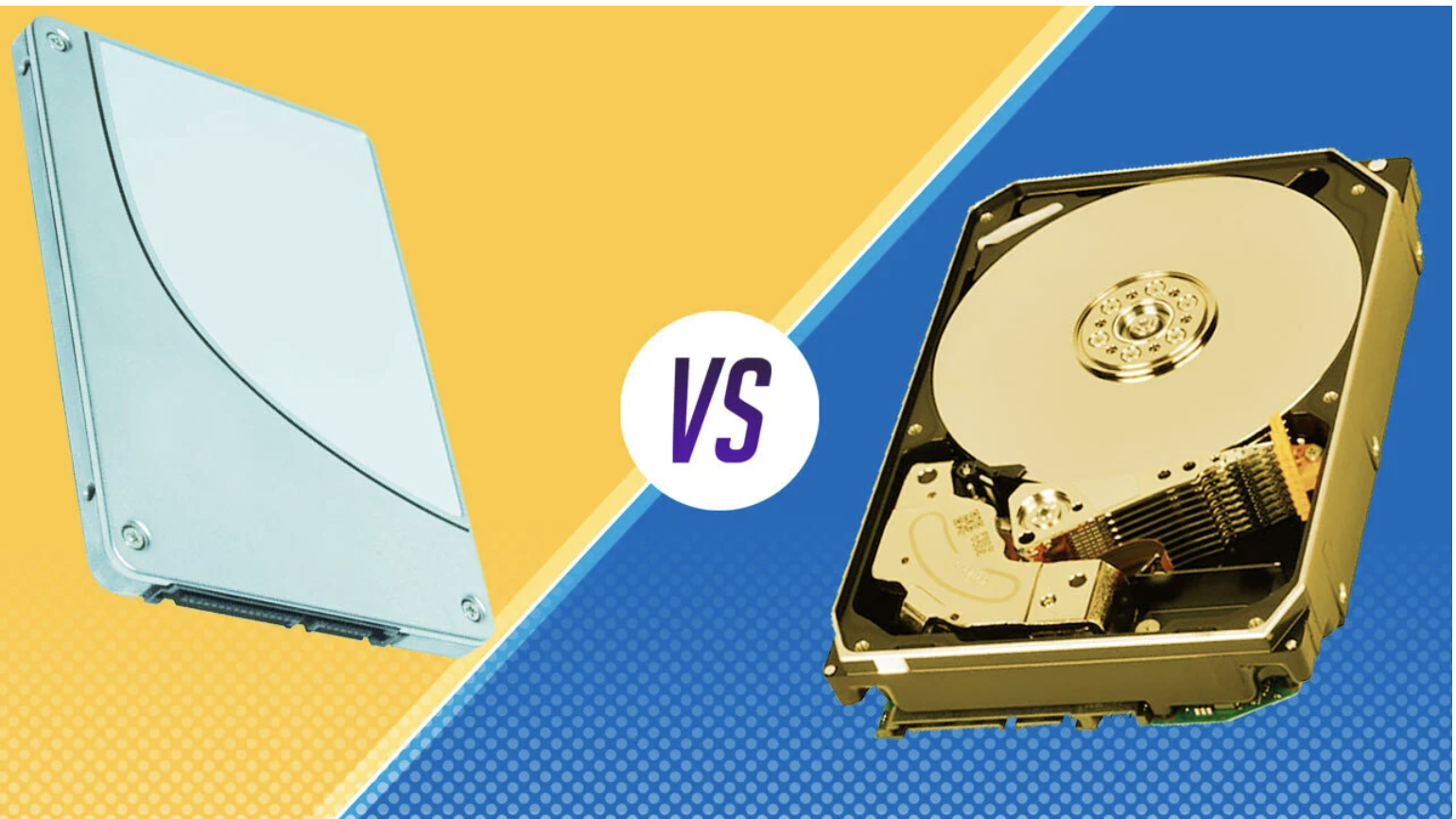
| Characterisation | SSD (Solid State Drive) | HDD (Hard Disk Drive) |
| Read/write speed | Very high, up to 550 MB/s for SATA SSDs and up to 3500 MB/s for NVMe SSDs. | Relatively low, usually between 100-160 MB/s. |
| Capacity | Typically, from 120 GB to 4 TB, more expensive models can go up to 8 TB or more. | From 500 GB to 20 TB, offering more space for less money compared to SSDs. |
| Reliability | High due to no moving parts. Resistant to shock and vibration. | Smaller than SSD due to mechanical components subject to wear and tear. |
| Durability | Limited number of write cycles, but generally superior to HDD. | Mechanical parts can fail, which affects durability. |
| Energy consumption | Low, making them ideal for portable devices. | Higher than SSDs, which is important to consider for portable devices. |
| Cost | More expensive compared to HDD per GB. Price depends on the type and capacity of SSD. | Cheaper per GB of storage compared to SSDs. |
| Noise level | Silent as they have no moving parts. | May generate noise due to rotating discs and moving read/write heads. |
| Access time | Very low, measured in microseconds. | Relatively high, measured in milliseconds. |
| Impact resistance | High, due to the absence of moving parts. | Low, mechanical parts can be damaged by strong shocks or vibrations. |
| Temperature regime | Less heat during operation. | Can generate more heat, especially under conditions of heavy use. |
Let’s take a closer look at the advantages and disadvantages of each type of storage device.
Performance
One of the main advantages of SSDs is speed. SSDs use flash memory, which allows them to run much faster than HDDs. This is especially noticeable when running operating systems and programmes, as well as when copying large files. Whereas, HDDs use mechanical parts and magnetic plates to read and write data, which makes them slower compared to SSDs.
Capacity and cost
If you need a lot of storage space, HDD may be a better option. Traditional HDDs offer more space for less money compared to SSDs. For example, you can buy a
1 TB HDD for about the same price as a 250 GB SSD.
Reliability and durability
SSDs are considered more reliable because they have no moving parts. This makes them more resistant to shock and vibration. In addition, SSDs have a longer lifespan because they are not affected by mechanical wear and tear.
Power consumption and Heat dissipation
SSDs consume less power, making them more efficient for portable devices such as laptops. Due to their lower power consumption, SSDs generate less heat, which can contribute to lower overall system temperatures.
Hard drives consume more power due to the mechanical parts that need to rotate. This can lead to greater heat dissipation, which is especially important to consider in systems with limited cooling.
Noise level
Because SSDs have no moving parts, they are virtually silent, making them an ideal choice for quiet work environments.
HDDs have rotating platters and moving read/write heads, which can create noticeable noise levels, especially during heavy use.
Access Time and Latency
SSD has a much lower access time than HDD. This means faster data access and lower latency for read/write operations.
HDD: Access time and latency are higher due to physical movement of read/write heads and disc rotation.
Form Factor and Size
SSDs are often smaller and offer greater design flexibility, making them ideal for compact and slim devices.
Traditional hard drives are larger, which can be a limiting factor for ultra-thin or small devices.
Temperature Mode
SSDs are generally less sensitive to high temperatures than HDDs, although excessive heat can still shorten their lifespan.
High temperatures can have a greater impact on HDD reliability and durability, especially under heavy load.
The choice between SSD and HDD depends on your needs. If you need high speed and reliability, and you are willing to pay for it, SSD is your choice. If you need more storage space and are on a budget, HDD is the better option. In some cases, the best solution may be to use both types of drives: SSD for the operating system and frequently used programmes and HDD for storing large amounts of data.
Take your next step in the world of data storage with reBITme.com and enjoy the benefits. Have fun shopping!
